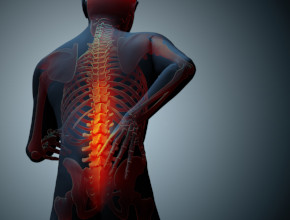Management of severe asthma
This guideline, developed by the European Respiratory Society and American Thoracic Society Task Force, addresses the management of severe asthma, which was defined as asthma that requires treatment with high-dose inhaled corticosteroids plus a second agent (and/or systemic corticosteroids) to prevent it from becoming uncontrolled, or asthma that remains uncontrolled despite this therapy.
The guideline identified 6 clinically important questions using the PICO (patient population, intervention, comparison, and outcome) framework. A systematic review of evidence was undertaken and the GRADE (Grading of Recommendations, Assessment, Development and Evaluation) approach was used to assess the strength of evidence and to develop recommendations. The PICO questions addressed the use of biologic agents for type 2 high asthma, use of antimuscarinic agents and macrolides, and use of biomarkers for predicting a treatment response. The guideline group considered the following factors when drafting recommendations: balance of therapeutic benefits versus burdens; adverse effects; treatment costs; quality of evidence; and feasibility and acceptability of treatment or intervention for patients.
The Task Force made the following 6 recommendations, of which 5 were weak, referred to as “suggestions,” and 1 was a strong recommendation:
- Suggestion to use anti-interleukin (IL)-5 and anti-IL-5 receptor alpha antibodies for severe uncontrolled adult eosinophilic asthma phenotypes and for those with severe corticosteroid-dependent asthma.
- Suggestion to use a blood eosinophil cutoff ≥150/microL to guide anti-IL-5 initiation in adults with severe asthma and a history of prior asthma exacerbations.
- Suggestion to consider specific eosinophil (≥260/microL) and exhaled nitric oxide fraction (≥19.5 parts per billion) cutoffs to identify adolescents or adults with severe allergic asthma and the greatest likelihood of response to anti-IgE therapy.
- Recommendation to use inhaled tiotropium for children, adolescents, and adults with severe uncontrolled asthma despite Global Initiative for Asthma (GINA) step 4 or 5 therapy or National Asthma Education and Prevention Program (NAEPP) step 5 therapy.
- Suggestion of a trial of chronic macrolide therapy to reduce asthma exacerbations in adult patients with persistent symptoms or uncontrolled asthma on GINA step 5 or NAEPP step 5 therapy, irrespective of asthma phenotype.
- Suggestion against the use of chronic macrolide therapy in children and adolescents with severe uncontrolled asthma.
- Suggestion to use an anti-IL-4/13 antibody for adults with severe eosinophilic asthma and for those with severe corticosteroid-dependent asthma, regardless of blood eosinophil levels.
The Task Force acknowledged that these recommendations will not be effective across all patients with severe asthma and also recognized the need for additional phenotype-driven research. They further emphasized that efforts are needed to implement standard therapies to maximum benefit prior to implementing novel and, in many cases, invasive and expensive therapies.
 English
English
 Español
Español
 українська
українська






